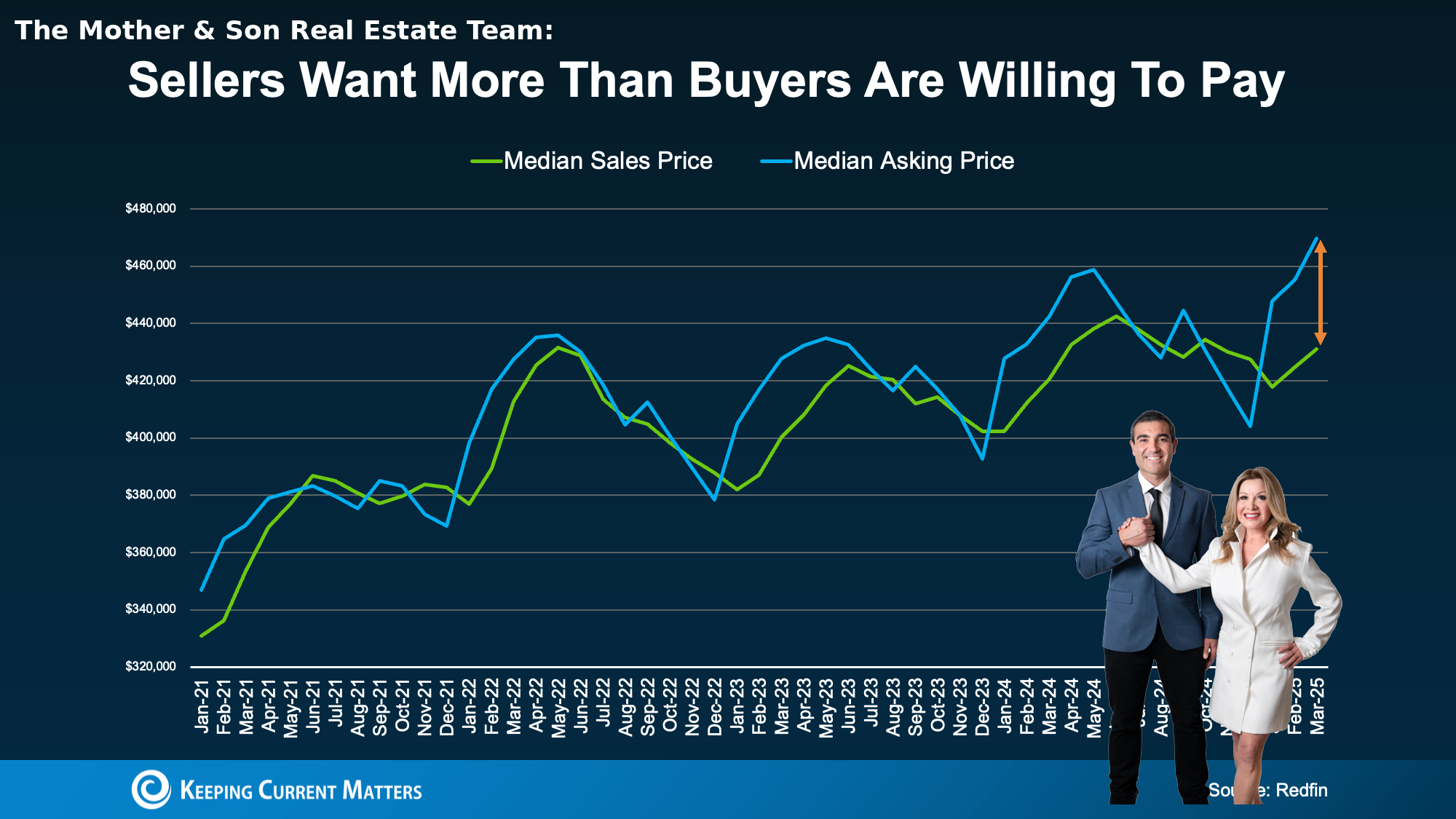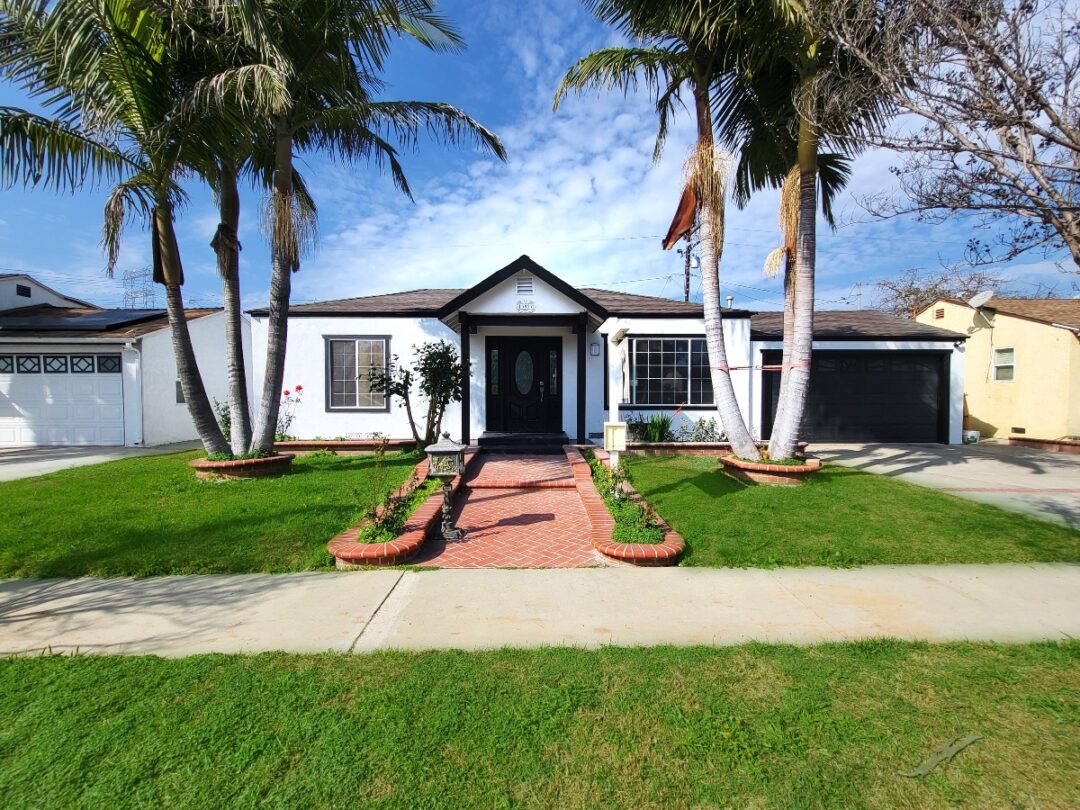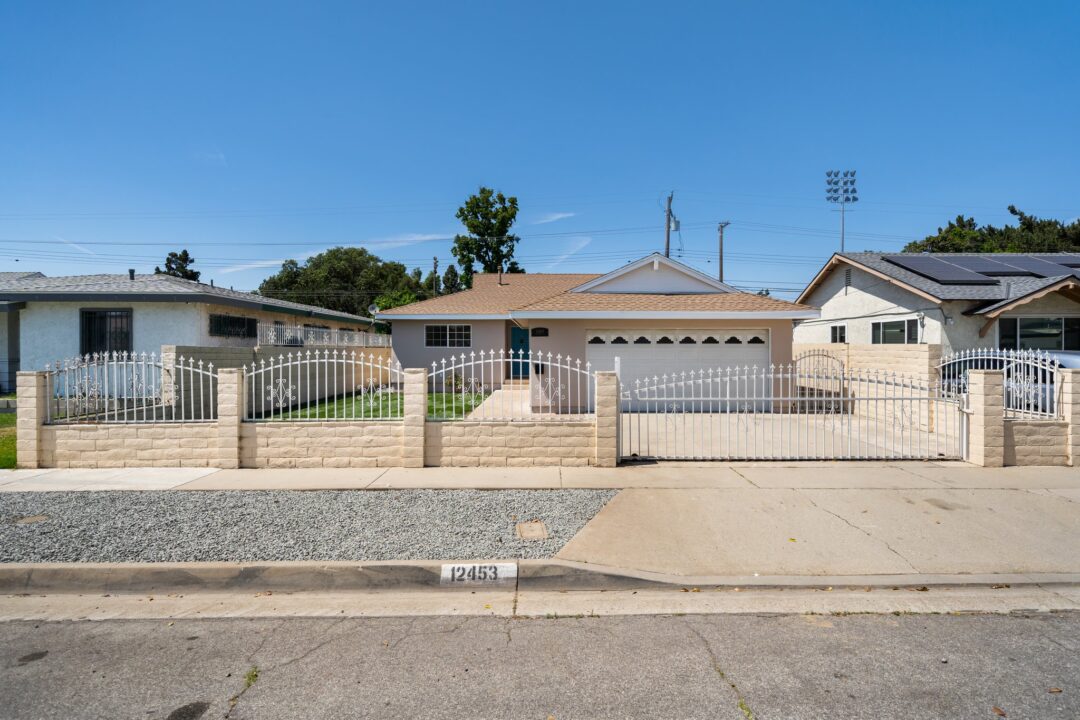
A few years ago, homes were selling faster than ever, often attracting multiple offers above asking price. It seemed like you could name any price, and buyers would be ready to make a deal.
But today’s housing market is a different story. As inventory increases, buyers are becoming more selective. Homes are staying on the market longer, and many sellers are having to lower their prices.
So, how can you still come out ahead? It all starts with one thing: pricing your home correctly from the beginning. In today’s market, this is more crucial than ever—and it can be the key to closing a successful sale.
The Pricing Gap: What Buyers and Sellers Expect
According to a recent survey from Realtor.com, 81% of sellers believe they’ll get their asking price or higher. However, the latest sales data shows a growing disconnect between seller expectations and what buyers are actually willing to pay.
An annual report from the National Association of Realtors (NAR) reveals that 44% of homes sold for less than their asking price, and one in three sellers had to reduce their price at least once before securing a deal. This indicates that many sellers’ expectations aren’t fully aligned with the current market reality.
Take a look at the graph ABOVE. It shows that asking prices (blue line) are consistently higher than actual sales prices (green line), and the gap is widening:
This tells us something important: Not all buyers are willing to pay what sellers are asking. That doesn’t mean you can’t sell for a great price—but it does mean that starting with the right price is essential to attracting the right buyer.
What Happens When You Overprice Your Home?
It might seem tempting to price your home high initially, thinking you can always negotiate down. But overpricing your home can have the opposite effect. An overpriced listing can sit on the market for too long and deter potential buyers.
When buyers see a property that’s been listed for an extended period, they start to wonder if there’s something wrong with it. This can result in fewer showings, decreased interest, and, eventually, a price reduction—none of which are ideal for a quick sale. As Realtor.com explains:
“Getting the right price from the start increases the likelihood that buyers will be interested, reducing the time your home sits on the market and minimizing the need for a price drop.”
The longer your home stays on the market, the harder it becomes to sell.
Seize the Opportunity with the Right Price
To avoid this mistake, it’s important to work with an agent who knows your local market and can help you price your home appropriately.
Your agent will analyze recent sales, buyer trends, and current inventory levels to determine the best price for your home. Keep in mind that pricing will vary depending on your neighborhood.
Additionally, home prices have surged by over 57% in the past five years, so even if you list slightly below your target price, you’ll likely still secure a great profit.
With the right agent on your side, you’ll attract more interest, prevent your home from lingering on the market, and maximize your chances of receiving a strong offer.
As Mike Simonsen, Founder of Altos Research, puts it:
“Well-priced homes are selling quickly in most parts of the country.”
Bottom Line
The market has changed, but your opportunity to sell remains. You just need the right pricing strategy. Reach out to a local real estate agent to discuss current pricing trends in your area and determine the right price to help your home sell quickly and for top dollar.
A few years ago, homes were selling faster than ever, often attracting multiple offers above asking price. It seemed like you could name any price, and buyers would be ready to make a deal.
But today’s housing market is a different story. As inventory increases, buyers are becoming more selective. Homes are staying on the market longer, and many sellers are having to lower their prices.
So, how can you still come out ahead? It all starts with one thing: pricing your home correctly from the beginning. In today’s market, this is more crucial than ever—and it can be the key to closing a successful sale.
The Pricing Gap: What Buyers and Sellers Expect
According to a recent survey from Realtor.com, 81% of sellers believe they’ll get their asking price or higher. However, the latest sales data shows a growing disconnect between seller expectations and what buyers are actually willing to pay.
An annual report from the National Association of Realtors (NAR) reveals that 44% of homes sold for less than their asking price, and one in three sellers had to reduce their price at least once before securing a deal. This indicates that many sellers’ expectations aren’t fully aligned with the current market reality.
Take a look at the graph ABOVE. It shows that asking prices (blue line) are consistently higher than actual sales prices (green line), and the gap is widening:
This tells us something important: Not all buyers are willing to pay what sellers are asking. That doesn’t mean you can’t sell for a great price—but it does mean that starting with the right price is essential to attracting the right buyer.
What Happens When You Overprice Your Home?
It might seem tempting to price your home high initially, thinking you can always negotiate down. But overpricing your home can have the opposite effect. An overpriced listing can sit on the market for too long and deter potential buyers.
When buyers see a property that’s been listed for an extended period, they start to wonder if there’s something wrong with it. This can result in fewer showings, decreased interest, and, eventually, a price reduction—none of which are ideal for a quick sale. As Realtor.com explains:
“Getting the right price from the start increases the likelihood that buyers will be interested, reducing the time your home sits on the market and minimizing the need for a price drop.”
The longer your home stays on the market, the harder it becomes to sell.
Seize the Opportunity with the Right Price
To avoid this mistake, it’s important to work with an agent who knows your local market and can help you price your home appropriately.
Your agent will analyze recent sales, buyer trends, and current inventory levels to determine the best price for your home. Keep in mind that pricing will vary depending on your neighborhood.
Additionally, home prices have surged by over 57% in the past five years, so even if you list slightly below your target price, you’ll likely still secure a great profit.
With the right agent on your side, you’ll attract more interest, prevent your home from lingering on the market, and maximize your chances of receiving a strong offer.
As Mike Simonsen, Founder of Altos Research, puts it:
“Well-priced homes are selling quickly in most parts of the country.”
Bottom Line
The market has changed, but your opportunity to sell remains. You just need the right pricing strategy. Reach out to a local real estate agent to discuss current pricing trends in your area and determine the right price to help your home sell quickly and for top dollar.


